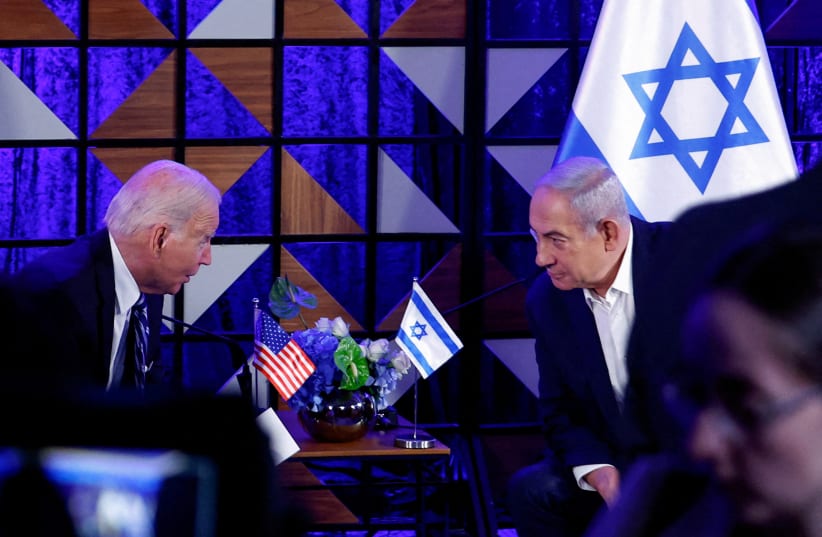In the complex geopolitical landscape of the Middle East, the ongoing conflict between Israel and Palestine has once again thrust diplomatic negotiations into the spotlight. Against the backdrop of escalating tensions and humanitarian concerns, the upcoming virtual meeting between the United States and Israel on the issue of Rafah represents a pivotal moment in the quest for peace and stability in the region.
As the Biden administration seeks to chart a new course in its approach to the Israeli-Palestinian conflict, the proposed alternative proposals to an Israeli military invasion of Rafah underscore the urgency of finding diplomatic solutions to address the root causes of the crisis. With more than 1 million Palestinians sheltering in Rafah, the potential for mass casualties and further exacerbation of the humanitarian disaster in Gaza looms large, underscoring the need for swift and decisive action.
The decision to hold a virtual meeting reflects the complexities of the current political landscape, as both Israeli Prime Minister Benjamin Netanyahu and President Biden navigate competing priorities and domestic pressures. In the aftermath of the U.S. refraining from vetoing a U.N. Security Council resolution calling for a ceasefire in Gaza, Netanyahu’s initial cancellation of the meeting served as a stark reminder of the tensions between the two allies.
However, subsequent efforts to reschedule the meeting highlight the underlying desire to address the crisis through diplomatic channels and avoid further escalation of tensions. With Netanyahu’s closest confidant, Israeli Minister for Strategic Affairs Ron Dermer, urging him to send a delegation to Washington, the virtual meeting presents an opportunity for constructive dialogue and cooperation between the two nations.
At the heart of the discussions will be the Biden administration’s alternative proposals to an Israeli military invasion of Rafah, which aim to mitigate the risk of civilian casualties and alleviate the humanitarian crisis in Gaza. By engaging in frank and open dialogue, both sides have the opportunity to explore innovative solutions and forge a path towards lasting peace and stability in the region.
Key to the success of the virtual meeting will be the participation of senior officials from both the United States and Israel, including White House National Security adviser Jake Sullivan and representatives from the Pentagon, State Department, and U.S. intelligence agencies. On the Israeli side, Dermer and Netanyahu’s national security adviser Tzachi Hanegbi will lead the talks, with senior defense and intelligence officials also participating.
Looking ahead, the virtual meeting is just the first step in a broader diplomatic effort to address the crisis in Gaza and advance the prospects for a comprehensive peace agreement between Israel and Palestine. Plans for a second meeting, to be held in person, underscore the commitment of both nations to continued engagement and cooperation in pursuit of shared objectives.
The virtual meeting between the United States and Israel on Rafah represents a critical opportunity to address the urgent humanitarian and security challenges facing the region. By leveraging diplomatic channels and engaging in constructive dialogue, both nations have the potential to chart a new course towards peace, stability, and prosperity for all parties involved.
